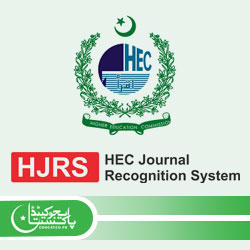REASON, ENLIGHTENMENT AND RELIGION: AN EVALUATION OF THE CONDITIONS OF LISA LU’S “RE-ORIENTALISM” IN CONTEMPORARY PAKISTANI ANGLOPHONE FICTION
DOI:
https://doi.org/10.58800/bujhss.v6i1.160Keywords:
Orientalism, Re-Orientalism, Pakistani Anglophone writings, Enlightenment, Reason, ReligionAbstract
Orientalism by Edward Said is the standard explanation of determining the West in relation to the East. However, Lisa Lu has reinvigorated it through her notion of re Orientalism, which aims to redefine West/East binaries in order to revitalize the image of the East. In contrast to Said's "Orientalism," which focuses on how the West builds the "Orient" and the "Occident," this theory looks at how eastern cultural producers respond to an "Orientalized" East and whether they choose to conform to or subvert the expectations of Western readers. In this perspective, the research interprets a selection of Anglophone Pakistani fiction. The major theoretical area of the critical debate here is to see where Pakistani writers practice re-orientalist discourse and where they are taking the burden of independent representation (the core element of re-Orientalism). The paper argues that most Pakistani fiction as for instance The Wasted Vigil by Nadeem Aslam fails to reorient the narratives along the lines mentioned below. First, it fails to reorient incompatible views of religion, reason, logic, and contemporary enlightenment. Second, it fails to reorient the beliefs linked with fanaticism and Muslimness by submitting to a stereotyped interpretation of religious extremism. Thirdly, it fails to distinguish between religious and Islamic attitudes and the cultural and political marginalization of Pakistani minorities.
Downloads
Published
How to Cite
Issue
Section
License

This work is licensed under a Creative Commons Attribution-NonCommercial 4.0 International License.







